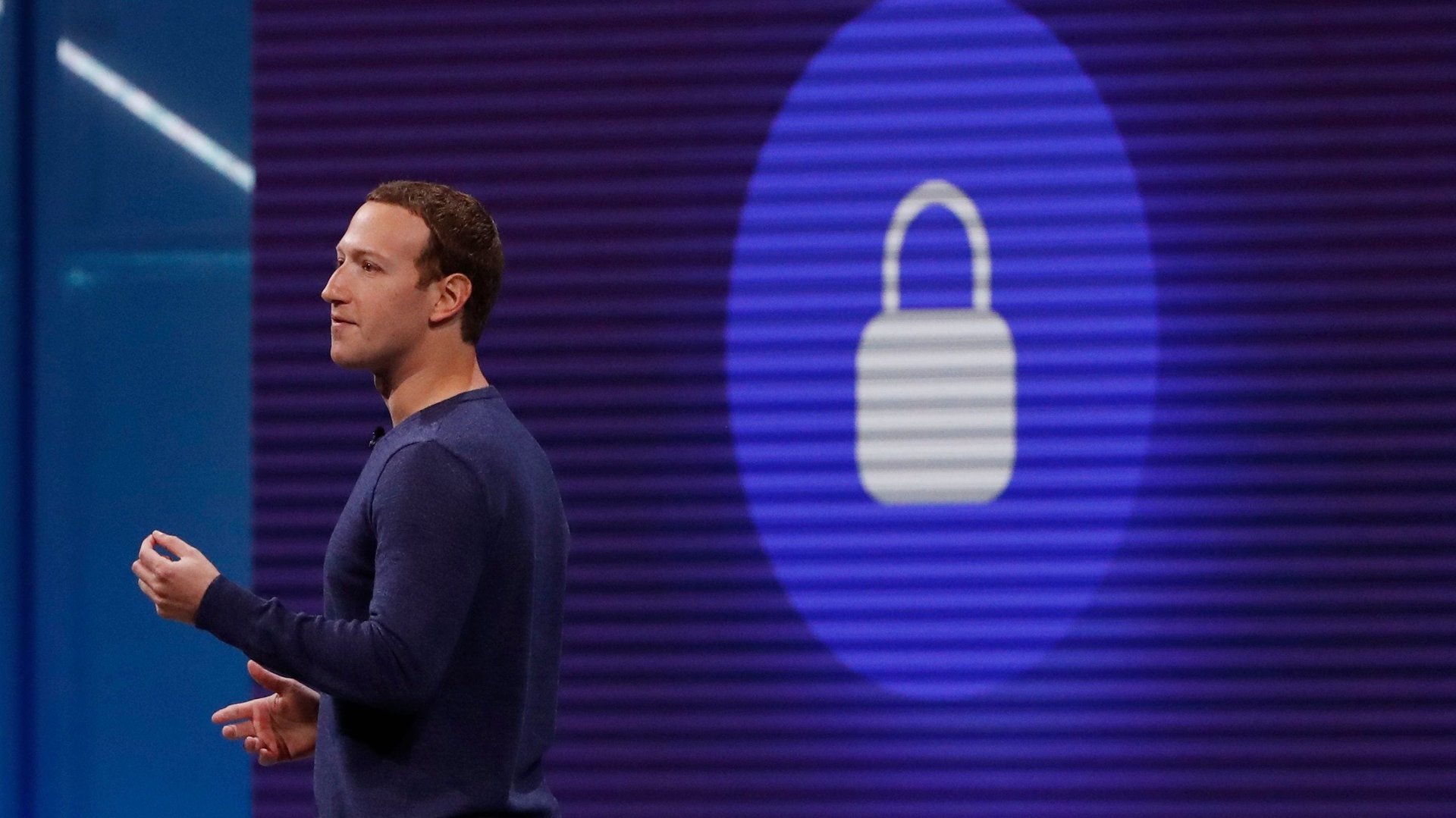Mark Zuckerberg has a different definition of “privacy” than you and me
Facebook CEO Mark Zuckerberg published a post today (March 6) outlining what he calls a “privacy-focused vision for social networking.” That sounds nice, until you realize that his definition of “privacy” is… confusing.


Facebook CEO Mark Zuckerberg published a post today (March 6) outlining what he calls a “privacy-focused vision for social networking.” That sounds nice, until you realize that his definition of “privacy” is… confusing.
People’s activities on the social network will no longer default to being viewable by everyone, Zuckerberg notes. Posts and messages will be “ephemeral,” meaning they can’t be viewed months or years after the fact. And every message sent on a Facebook service will be end-to-end encrypted, keeping it safe from hackers and “over-reaching governments.”
These examples provide an interesting picture of the future of Facebook. But they are definitely not examples of “privacy” as it is used in the context of the internet, user data, and social networks. Instead, they show that Zuck is basically aiming to make Facebook more “private”—the way you might refer to a “private party” or your “private parts”—while claiming the company really cares about “privacy.”
The two terms mean different things. You can see the different definitions at work in these two paragraphs near the beginning of the post (emphasis added):
I understand that many people don’t think Facebook can or would even want to build this kind of privacy-focused platform—because frankly we don’t currently have a strong reputation for building privacy protective services, and we’ve historically focused on tools for more open sharing. But we’ve repeatedly shown that we can evolve to build the services that people really want, including in private messaging and stories.
I believe the future of communication will increasingly shift to private, encrypted services where people can be confident what they say to each other stays secure and their messages and content won’t stick around forever.
The first use—”privacy-focused platform”—implies the technological/internet definition. A “privacy-focused platform” sounds something like the messaging app Signal or the search engine DuckDuckGo: These services do not retain any data about any individual user, and they prioritize user anonymity above nearly all other concerns. But in the next paragraph Zuckerberg tries to casually swap in the term “private,” in the generic sense of something that is not public. (Like Zuckerberg’s home, which became extremely private after he bought adjacent lots that might offer views of his master bedroom.)
The post neglects to mention that a “private” Facebook is not mutually exclusive with one that is bad on “privacy,” as Zuckerberg freely admits the company has been historically. Having photos disappear after a month doesn’t mean Facebook won’t use photos of you to train its facial-recognition algorithms. Implementing end-to-end encryption does not mean Facebook won’t use all kinds of other data sources to create a highly individualized profile of you and monetize it by selling targeted ads.
The post ends with this sentiment:
I believe we should be working towards a world where people can speak privately and live freely knowing that their information will only be seen by who they want to see it and won’t all stick around forever.
But if Zuckerberg’s definition of “privacy” has nothing to say about ad targeting or empowering users to determine what happens to their data, that sentiment becomes “their information will only be seen by who they want to see it—and also Facebook.” After all, this is coming from the same company that, when users gave it their phone numbers for two-factor login, used those numbers for ad targeting.
Zuckerberg is a smart guy, and he surely knows the difference between “private” and “privacy.” The fact that he is willingly not making this distinction is telling.